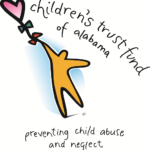Singer Demi Lovato has had a long struggle with addiction, mental health, and an eating disorder. Demi has also been very vocal about showing support for those in recovery and advocating for those affected by mental health. After facing a near-fatal heroin/fentanyl overdose in 2018, Demi Lovato eventually turned to an approach that involves drinking alcohol and smoking marijuana in moderation.[1]
Demi Lovato has explained that they are using the “California sober” approach to recovery. Rather than abusing heroin or crack cocaine, Demi consumes alcohol and cannabis – an approach which Demi considers safer than their previous patterns of drug use. But what does California sober really mean, and is it something you should try?
Most traditional models of recovery involve complete abstinence from drugs and alcohol. But, according to Demi Lovato, the “complete abstinent method is not a one-size-fits-all solution for everybody.”[1]
While this approach is generally not advised for people with a history of addictive behaviors, it may be a suitable form of harm reduction for some.
What Does It Mean to Be “California Sober”?
There is no medical or official definition of the term “California sober.” It usually refers to abstaining from drugs and alcohol except for marijuana. In the case of Demi Lovato, however, the term includes drinking in moderation, as well.
California sober is a controversial approach to recovery that some perceive as not being sober at all – or even an insult to the recovery community. Advocates of the approach believe that being California sober is less dangerous and life-threatening than abusing other drugs that can cause overdose or death.
Potential Dangers of the California Sober Trend
Now that Demi Lovato has explained using the California sober approach to recovery, the California sober or “Cali sober” movement is gaining popularity, but this approach is not for everybody. Experts have expressed their concern with the emerging trend, particularly in people with a history of addictive behaviors.

In an interview with Healthline, Vanessa Kennedy, Ph.D. and addiction specialist explains, “Individuals with addiction difficulties usually find themselves unable to manage their substance use either because they are not able to ‘put the brakes on’ when using or because they have life-altering consequences from their use (e.g., overdose, medical problems, worsening mental health problems such as suicide attempts, relationship conflict, job loss, legal problems), hence the need to quit altogether.”[2]
In other words, someone, who once had trouble controlling their opioid use, is likely to also struggle to control their marijuana or alcohol use. This is why so many traditional approaches to recovery, such as the 12-Steps used in Alcoholics Anonymous (AA) use an abstinence-based model. Some potential concerns and dangers surrounding the California Sober movement include:
- Replacing one addiction with another (i.e. replacing heroin addiction with marijuana addiction)
- Failing to address underlying conditions that contribute to the need to use substances in the first place
- Returning to old substance use patterns after periods of using only marijuana
- Consuming marijuana that is laced with other substances
- Failing to use marijuana and/or alcohol in moderation
Still, for some, being California sober is better than the other alternative.
Knowing When and Where Harm Reduction Has a Place
Harm reduction is an idea that people can use certain strategies to manage their substance abuse while reducing the potential for negative and life-threatening impacts. Although harm reduction strategies are also controversial and do not work for everyone, there is evidence that shows harm reduction can save lives.[3]
Consider the following examples of when using a California sober approach is considered an effective form of harm reduction.
- Sally, like many other Americans, has found herself drinking more during the pandemic.[4] A few glasses of wine help ease her anxiety and put her to sleep. However, she has noticed that she always wakes up in the middle of the night and is irritable with a headache the next day. Sally decides to limit her drinking to two glasses of wine each week and replaces the other glasses of wine with cannabis. After moderating her drinking by using cannabis, she is sleeping better and has found her moods more stable.
- Matthew is a full-time employee who likes to blow off steam with his friends by using cocaine on the weekends. After using cocaine for several months, he has noticed that he now craves cocaine throughout the week, and he is worried he is getting addicted. He decides to stop using cocaine and smoke marijuana instead. He finds that he no longer wants to use cocaine, and he can moderate his marijuana use.
- Sarah has a history of addiction and relapse. She has found herself struggling with her mental health and living in a state where medical marijuana is legal. She has worked with her therapist and her doctor, who have concluded that medical marijuana is right for her. She uses her marijuana exactly as it is prescribed. Sarah finds that her depression and anxiety have improved.
 In these examples, Sally was able to stop drinking so much while still being able to cope with pandemic-related stressors. Matthew was able to avoid a full-blown addiction to cocaine. Sarah was able to get her mental health under control and avoid another relapse. Although they are only examples, these are potential real-life situations in which the California sober movement can come in handy.
In these examples, Sally was able to stop drinking so much while still being able to cope with pandemic-related stressors. Matthew was able to avoid a full-blown addiction to cocaine. Sarah was able to get her mental health under control and avoid another relapse. Although they are only examples, these are potential real-life situations in which the California sober movement can come in handy.
Is California Sober Right For You?
If you live in one of many states where recreational marijuana use is legal you may be wondering if going “Cali sober” is right for you. First and foremost, if you are in recovery and are having no troubles abstaining from drugs and alcohol, there is no reason to change that by using marijuana. There is no sense in fixing something that is not broken.
However, if you are in a place where you are ready to give up something that is harming you, like alcohol, heroin, or methamphetamine, you may consider exploring smoking weed instead. If you can smoke marijuana legally without the same repercussions as other hard drugs, and if marijuana helps you stay away from those hard drugs, you may be a good fit for the California sober lifestyle.
If you do decide to try going California sober, take these steps to keep yourself and others safe.
- Only purchase your marijuana at a licensed dispensary in your state
- Talk openly with the bud-tenders at the dispensary. Tell them about your goals, ask any questions you have, and let them help you find the right strain for you.
- Do not drive while under the influence of marijuana
- Avoid mixing marijuana with alcohol and/or other substances
- Tell a trusted friend or family member about your decision to try smoking marijuana
- Consult with a therapist on a regular basis and be honest with him or her about your marijuana (and other drugs) use
Always consult with a mental health specialist or a therapist before adding or changing anything in your current lifestyle, especially if it has to do with your recovery.
In the end, if smoking marijuana is the key to keeping you alive and off of other hard drugs, California sober may be a practical option for you. While it is never recommended for people who struggle with addictions of any sort, cannabis can be a great harm reduction tool in specific populations.
References:
- https://www.today.com/health/what-california-sober-demi-lovato-s-recovery-plan-explained-t213730
- https://www.healthline.com/health-news/demi-lovato-says-shes-california-sober-what-does-that-mean#Harm-reduction-has-a-place-for-some
- https://www.hri.global/harm-reduction-decade
- https://www.cnn.com/2020/09/29/health/americans-drinking-more-pandemic-wellness-trnd/index.html








